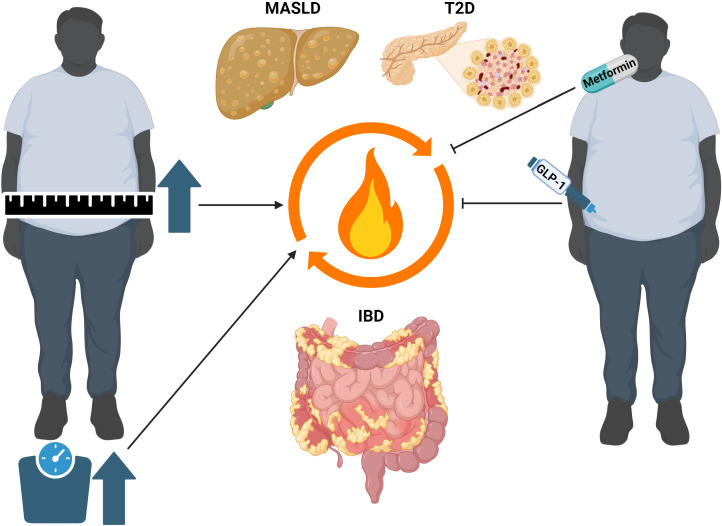Figure 1.
Clinical link between obesity and metabolic disorders with inflammatory bowel disease (IBD). Obesity and associated metabolic disorders such as metabolic dysfunction-associated steatotic liver disease (MASLD) and type 2 diabetes (T2D) seem to negatively influence the course of IBD. For example, visceral adiposity is associated with risk for flares in ulcerative colitis (UC) and Crohn’s disease (CD),38 and steatotic liver disease serves as an independent risk factor for the development of CD.51 In turn, the diagnosis of IBD increases the risk of developing MASLD and liver fibrosis when compared with the general population.48 Moreover, the treatment with antidiabetic agents with proven effects in metabolic diseases seems to reduce the risk for developing IBD64 and disease burden in patients with IBD.65

